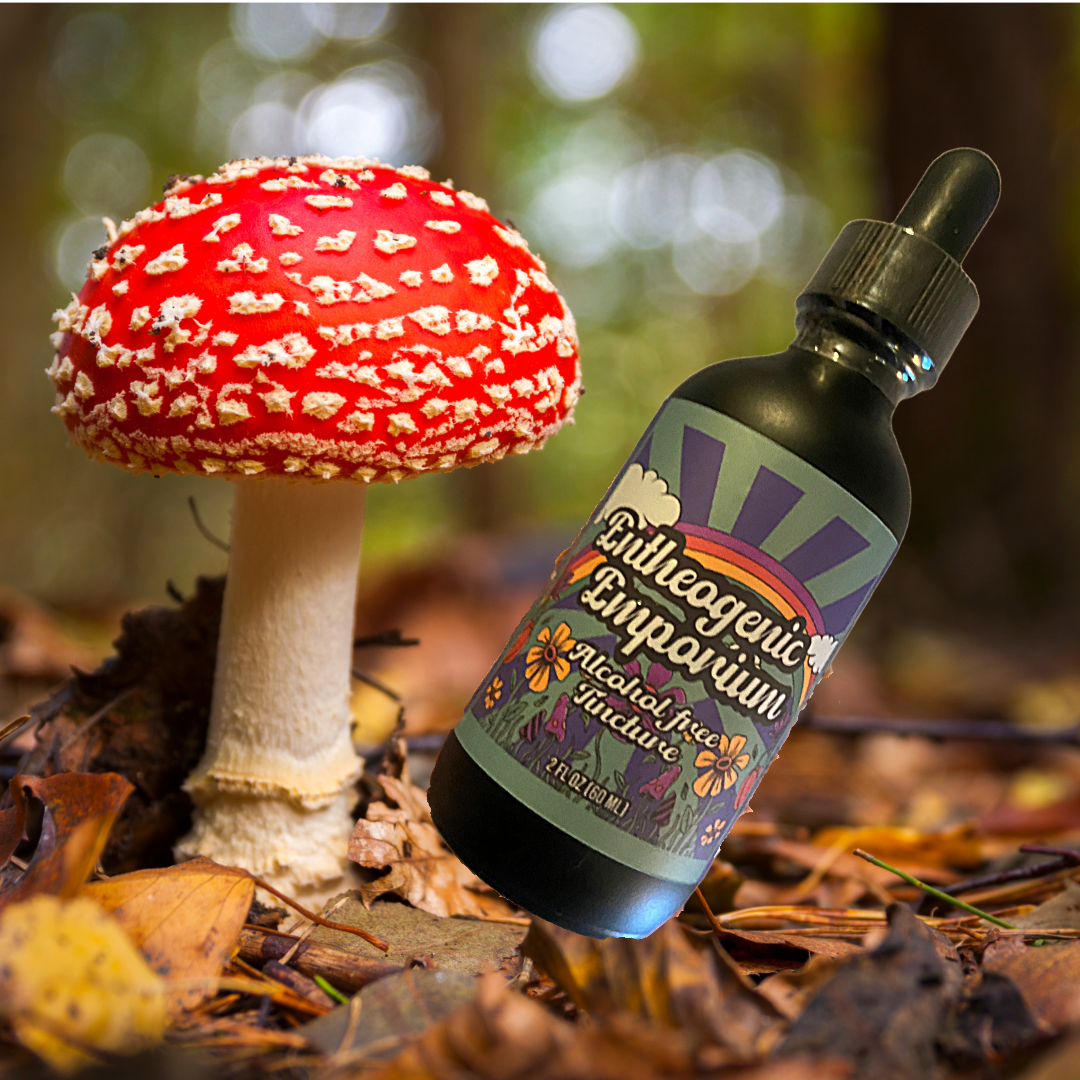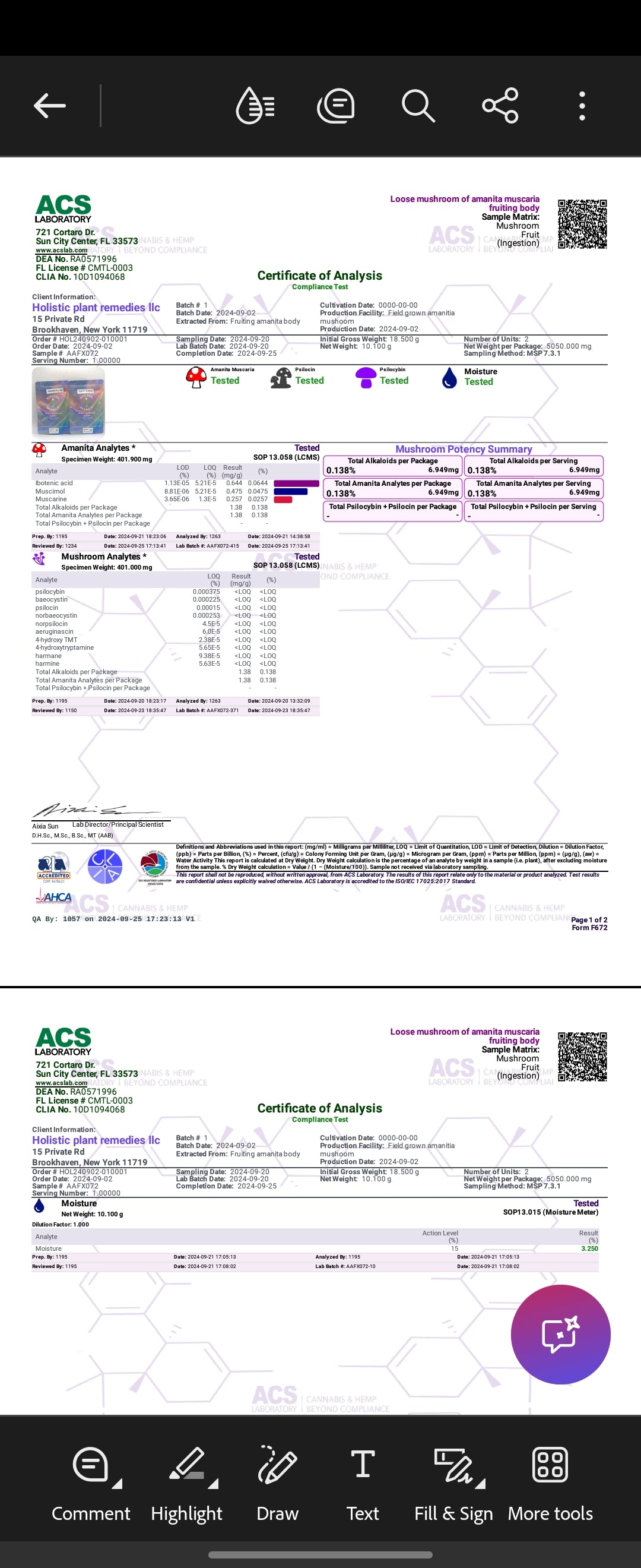
Healing Herbals
Amanita Muscaria Topical Tincture Fl 2oz 60 ml
Amanita Muscaria Topical Tincture Fl 2oz 60 ml
Couldn't load pickup availability
Amanita Muscaria Tincture Fl 2oz (60 ml) - Alcohol Free
Product Description: Amanita Muscaria Tincture 2oz (60ml) Use healthy grade A caps to craft a high end clean tincture, this is designed for any purpose besides human consumption. This can involve research, aromatherapy, topical, or anything besides consumption.
Amanita has been used for centuries. This tincture with the new regulations is only intended for topical use only and in aromatherapy use cases.
Ingredients: High Quality Amanita Caps, Vegetable Glycerin
Note: Not for human consumption
New FDA rules only allow this for ornamental or topical use.
Not for human consumption.
This product will NOT be distributed to Louisiana. (Must be 21 years or older to purchase. We do not ship to the following states: Louisiana)
Share


I've been taking Amanita mushrooms in various forms for about a year and love the mellow yellow vibe. Actually helped me get off mental health medications. I've tried amanita tincture with alcohol and don't like it as much as the oil infused tincture. It was a little off a first but I got used to it and actually take a few drops and a 5mg thc gummy when I wake up at 3 AM with insomia. I put some music on and go right back to sleep. I've bought Amanita tincture, caps, poweder etc...before, and will reorder HH.
This has been clutch for my insomnia. Thanks HH :) :) :)
I love the tinctures. Wonderful
Great product
I started using this product 2 months ago and the positive impact it's had on my mental and physical health is life changing. I no longer take any prescription medications for anxiety, ADHD or depression. I'm so happy to have found a product to replace them and never have to deal with their side effects again.

Here at Healing Herbals Store
We carefully select suppliers who share our commitment to environmental stewardship and minimize waste through eco-conscious or reused packaging whenever possible. We prioritize supporting fair labor practices and are currently investing in regenerative farming methods, so every product reflects our dedication to both quality and the health of our planet. Shop now!


